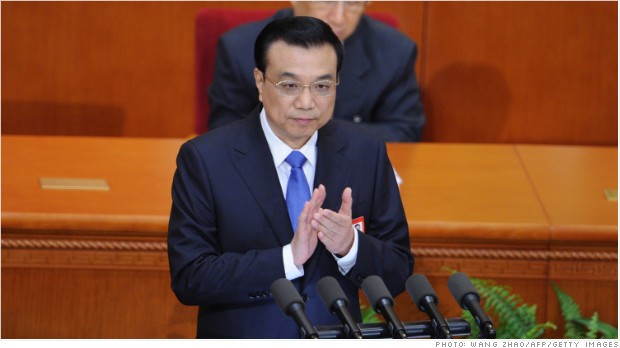
As the world’s second-largest economy, China now has both direct and indirect effects on the global economy. That’s why the question of what economic growth target China would set for 2014 has been a big issue. On Wednesday, March 5, Premier Li Keqiang said China will aim for 7.5 % GDP growth in 2014. During China’s annual parliamentary meeting, he said:
“We are at a critical juncture where our path upward is particularly steep…The pace of economic growth is changing,” Li said in the report. “At the same time, it should be noted that China has the foundation and conditions for maintaining a medium-high rate of economic growth for some time to come.”
Many people may wonder why China has not set up its goal higher than the 7.5% goal from last year. In fact, it experienced 7.7% growth rate last year. However, it is now getting ready to slow down. China’s economy is faced with moderating economic growth. Many economists (and Xi Jingping) agree that China needs “painful” reforms, which may decelerate the economy. Chinese politicians are also aware of this, and that’s why their goal of gross domestic product growth for 2014 is 7.5%, which is slower than the 7.7% growth China faced in 2013. Beijing’s decision to keep its GDP target unchanged from 2013 shows the government’s effort to balance its growth.
Reorient economist Steve Wang says that keeping the 7.5 target is a balance between “needs and possibility, which helps to boost confidence and facilitate economic restructuring.” Although it may slow down a bit, it promises a brighter future for China’s economy.
The major changes China will see in the next year or so are stronger regulations on credit markets and tighter money. The level of risk in the Chinese economy has approached a point that China has begun to find unacceptable. So while growth will continue a push from the government to slow risky ventures should make the economic conditions safer.
Growing to much, and having to limit growth isn’t the worst problem in the world. Trying not to make the same mistakes that the US has, and learning from history is a wise move for China. I believe they won’t fall into the same problem that the US had. Their markets are much more controlled and because of this it is harder for the economy to spiral downward as our’s did.
In the background is the shifting structure of labor markets. As the number of potential migrants falls, while the urban-born working age population is already declining, what growth rate is necessary to achieve “domestic stability” (urban job creation)? My hunch is that this growth rate may suffice – if it is achieved. More on that later this term!
I really think that due to the projected labor shortage and low fertility rate, slow economic growth is “okay” for China. China would not need that many new jobs for the new work force due to declining working age population.
I think 7.5 % growth rate for China is enough (at least) for this year.